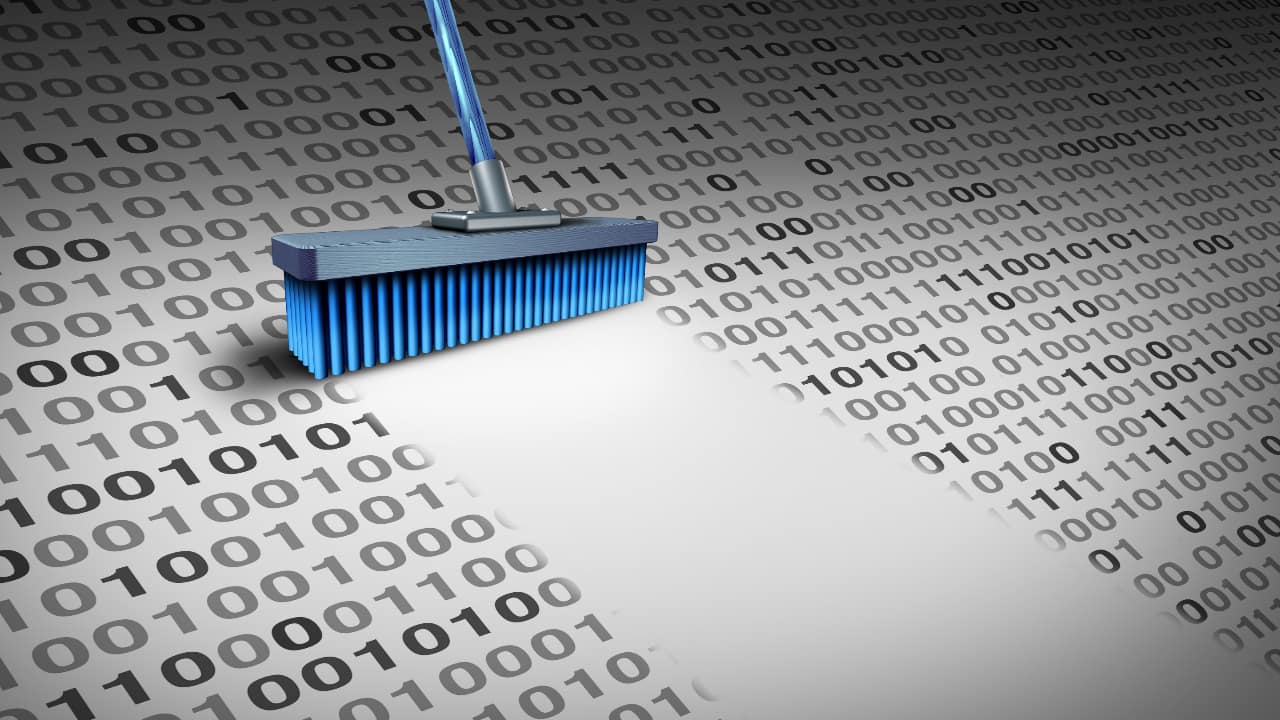
Yes, it’s a marketing initiative, but with the internet and its supporting systems producing more than 900 million tons of CO2 each year, Digital Cleanup Day could still be worthwhile.
It’s a grim reality of life that many commercial and government organisations will happily record every detail of every person they can get their bloodstained jaws around, then deploy a weaponised phone maze in order to ward off anyone presumptive enough to make a phone call going in the other direction. It’s a contradictory state of affairs, and one which leaves the world scattered with the digital detritus scattered by organisations which demand a DNA sample in order to say hello.
The fact that these abandoned records represent a security risk is well known, especially in a world where the routine reuse of passwords is sometimes difficult to avoid. For slightly obscure technical reasons, databases shouldn’t actually be storing passwords anyway, but people do. It’s for this kind of reason that many jurisdictions place restrictions on the data organisations can hold, and why, and for how long.
But security, it turns out, is not the only problem with the dozens or hundreds of forgotten database entries which most of us have created. It’s a sort of spidery digital fingerprint of passwords, email addresses, phone numbers, chat logs, customer relations database entries about how impolite we’ve been to the people at the end of the phone maze and, if we’ve been particularly incautious, credit card numbers and PayPal authorisations. Multiply that up over all the users of the internet and it’s a lot of data. And, as it turns out, it has to be stored somewhere.
In 2023, “somewhere” means “the cloud,” which sounds more impressive than it is. In reality, the cloud is less a floating collection of water vapour, and more a series of large warehouses full of servers and air conditioning equipment. In that context, it’s perhaps less of a surprise to learn of the estimate that those servers cause about the same amount of greenhouse emissions as the entire aviation industry. It’s not entirely clear how much of that arises from dormant data, but it’s not hard to believe it’s moving the needle.
Dead data still costs
That statistic is being associated with the newly-announced Digital Cleanup Day, set for March 18th this year. Let’s be clear; it’s a day nominated by two companies, Datadobi and Laminar, which are both involved in large scale data handling, and who certainly have a commercial interest in promoting themselves to people interested in this sort of thing. Still, dead data costs exactly as much to store as real live data, and so both those organisations could be said to be talking themselves out of business by encouraging people to explicitly close down dormant accounts, delete unused apps and files, and generally empty the recycle bin of life.
Still, storing a bunch of data nobody’s using hardly represents the most sparkling business opportunity for either company. Assuming the aviation statistic is accurate then that’s comprehensively horrifying, albeit a glittering opportunity to markedly improve the world at zero loss to more or less everyone who’s ever used the internet. The problem with digital cleanup for the sake of avoiding waste, however, is exactly the same as the problem with digital cleanup for the sake of security.
Lots of people make lots of money out of mining exactly that kind of data.
Leave no (digital) footprints
It’s no exaggeration to say that a large part of the internet is hugely reliant on the funding generated by coming as close as is legally possible to selling information about people. Even at the level of an ordinary, medium-sized company, a database entry describing a person is likely to be seen as a potential sales lead, something a company will only release from the iron grip of its ichor-streaked talon… er, something a company will only delete from its database under pretty extreme legal duress.
Enforcement is tricky; authorities lack the resources, even if they have the expertise, to go through the unimaginably vast amount of information potentially held by any company on any person. If we can’t enforce that sort of tidying-up of data in order to protect security, which can have immediate real-world consequences, it’s hard to imagine any one company putting a lot of effort into mitigating its individually-tiny influence on that horrifying pollution statistic, of which the most immediate consequences are for, say, Tuvalu in a few years’ time.
It’s never been a bad idea to delete things you don’t need, to minimise your online footprint, and torch that sea of forgotten attachments that lurk in the depths of the downloads folder. If scare tactics work for you, maybe run a critical eye over all the files that are lying around on any nearby computer desktop, and estimate the problems that would be caused if they were to become public. Aside from the security concerns, there’s lots we could say about about low power consumption computing and the intense interest in ARM-based CPUs for the data centre. The solution to storing dead data, though, ought not to be about improving server farms in order to store more long-since-deceased information.
Tags: Technology


Comments